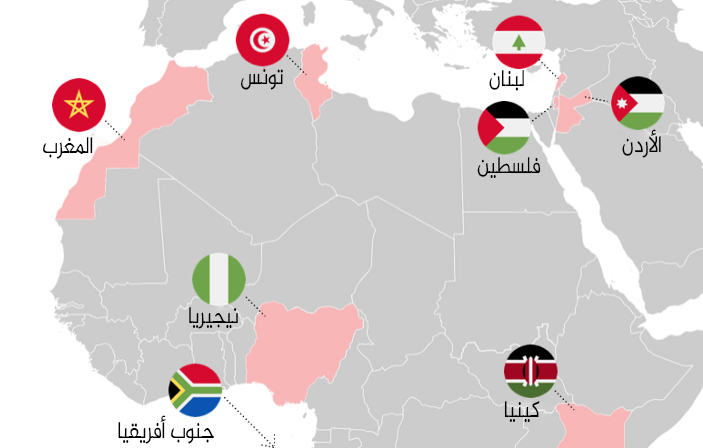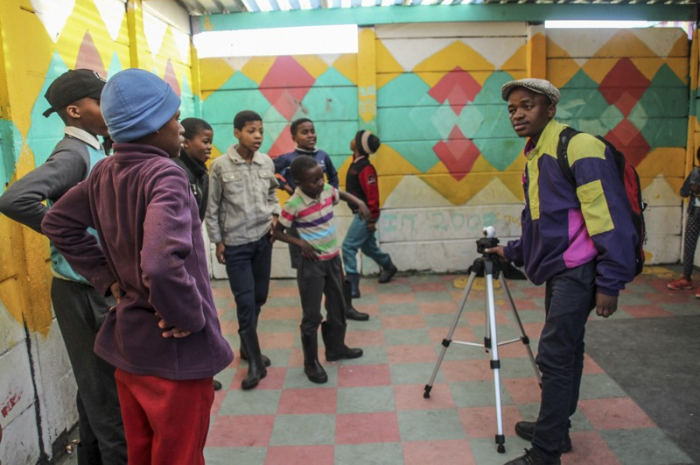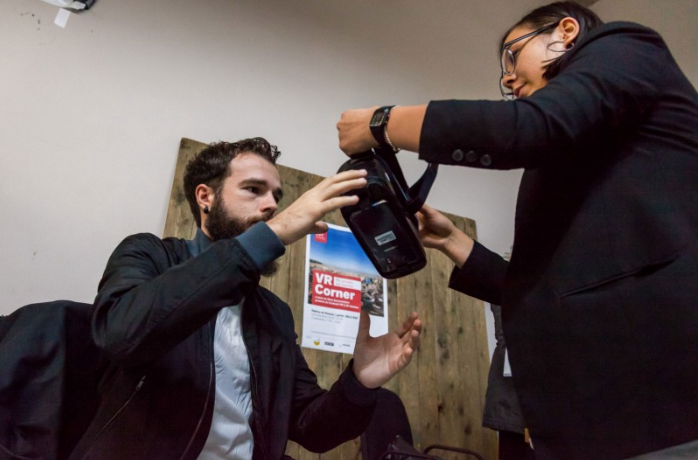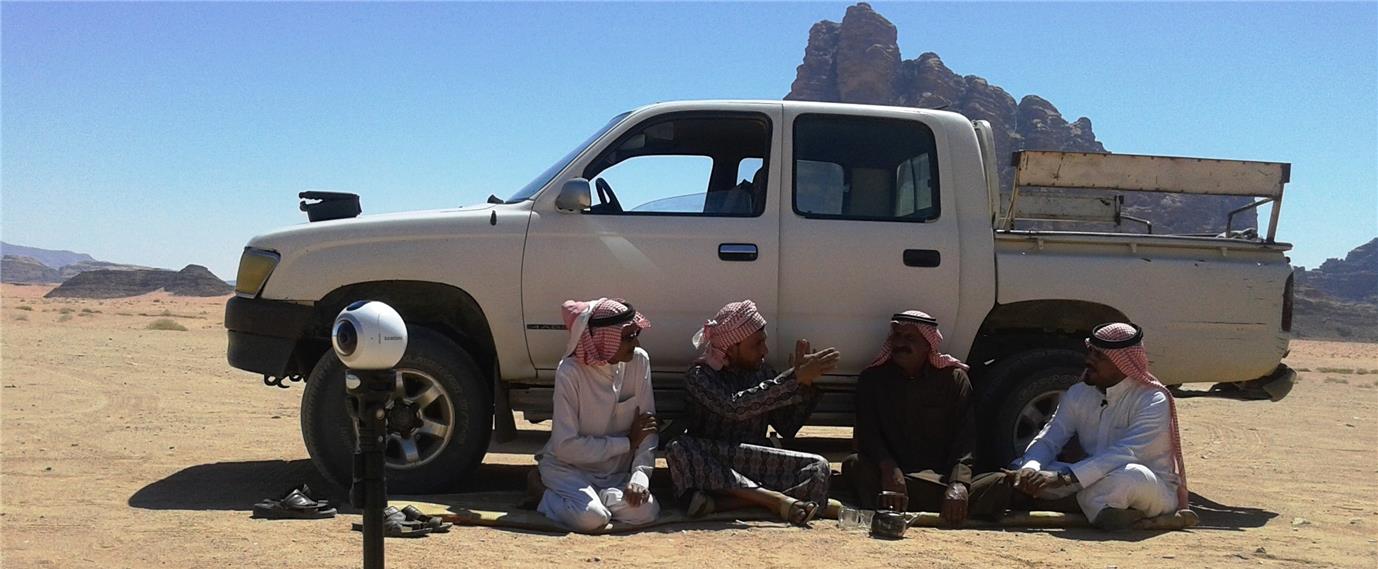عندما بدأ الواقع الافتراضي بتحويل ساحة الصحافة، كان واحدا من أهم الأسئلة التي طُرحت يدور حول إمكانية الوصول إلى الوسيط، سواء بالنسبة للمستهلك أو صانع المحتوى. لذا قررنا مواجهة هذا التحدي من خلال توزيع كاميرات Samsung Gear على ثمانية من صانعي الأفلام العرب والأفارقة والتعاون معهم لإنتاج أول فيديو بتقنية 360 درجة ضمن مبادرة أطلقنا عليها "شعبي وحكاياتنا".
مع مرور كل عام، يتوصّل المختصون إلى حلول أكثر لتسهيل إمكانية الوصول إلى تقنية 360 وتكنولوجيا الواقع الافتراضي VR. كما أصبحت منصات مثل فيسبوك ويوتيوب مساحات جيدة لمشاهدة محتوى الفيديو بتقنية 360 درجة، بالإضافة إلى انتشار سماعات الرأس رخيصة الثمن مثل the Gear و Google Cardboard، وغيرها.
كما أن شركات تصنيع الكاميرات مثل Samsung و Nikon و Kodak و LG وغيرها قد صنعت أيضاً كاميرات مختصة بالتصوير 360 درجة، سهلة الاستخدام للمستهلكين. ومع ذلك، ما زال هناك بعض العوائق التي تحد من انتشار هذه التقنية، أهمها تخوف المستهلكين من احتمالية الدخول في عالم جديد تماماً دون علم أو تجربة مسبقة.
في مبادرة "شعبي وحكاياتنا" قمنا وبالشراكة مع Samsung بتوزيع كاميرات تصوير 360 درجة، وتدريب ثمانية من صناع الأفلام ليتمكنوا من إنتاج فيديو لنشره عبر منصاتنا في شبكة الجزيرة.
واخترنا على وجه التحديد صانعي الأفلام الذين لم تكن لديهم أي تجربة في تصوير مقاطع بتقنية 360 درجة من قبل، إذ أن إنتاج واستهلاك تكنولوجيا 360 بين صانعي أفلام من الشرق الأوسط وإفريقيا كان أقل، مقارنة بمناطق أخرى. أردنا المساعدة في كسر حاجز دخول هذه التقنية، إلى جانب المساعدة في دعم الناس حتى يتمكنوا من سرد قصصهم الخاصة، من مجتمعاتهم وشعوبهم الخاصة.
بالنسبة لصانع الأفلام المغربي سعد سليماني (23 عاماً)، فقد كان مهتماً للغاية بتقنية 360 درجة ولكن لم تتح له الفرصة لاستكشافها، يقول "لطالما أثار عالم الواقع الافتراضي VR اهتماماً كبيراً لدي. إن فكرة تمكين المتلقي من الدخول إلى بيئة أخرى دون وجود مادي في المكان أمر مدهش".
فيما يلي الخطوات التي اتخذناها لتوجيه صانعي الأفلام هؤلاء لتصوير أول فيديو لهم بتقنية 360 درجة.
1- اختيار المرشحين المناسبين
أعلنا عن فتح باب لتقديم طلبات لصانعي الأفلام الشباب من منطقة الشرق الأوسط وإفريقيا. ثم اخترنا موهوبين من المغرب وتونس والأردن ولبنان ونيجيريا وجنوب أفريقيا وكينيا وفلسطين.

2- إرسال المعدات
قمنا بشحن مجموعة صغيرة من المعدات تتكون من الكاميرا و أدلة تدريب وكتيبات لكل المرشحين.
3- التدريب
قمنا بعمل جلسات تدريبية عبر Skype لمدة ساعة واحدة مع كل من صانعي الأفلام، كل جلسة غطت كيفية استخدام تقنية الواقع الافتراضي والتصوير360 درجة وما هي المقومات التي تجعل من المواد المنتجة بهذه التقنيات جيدة.
ثم طلبنا منهم تتبع شخصية ملهمة تتعامل مع قضية داخل مجتمعهم. كان لديهم أسبوعين للتصوير. خصصنا بعض الوقت لتبادل الأفكار المبدئية والنقاش في اللقطات المحتملة.

4- الإنتاج
كان لدى صانعي الأفلام 3 أيام للعودة إلينا بالفكرة النهائية وسيناريو مقترح. بعد الموافقة على القصة المقترحة من إدارة المحتوى لدينا، كان لديهم 3 أسابيع لتصوير اللقطات.
ومن خلال التواصل عبر WhatsApp ، كنا على أهبة الاستعداد خلال عملية الإنتاج بأكملها للمتابعة والإجابة على أي تساؤلات أو طارئ خلال التصوير.
5- المونتاج
بعد قيام المشاركين بالتصوير، قاموا بتحميل اللقطات والسيناريو المبدئي وإرسالها إلى فريقنا. وبدورنا قمنا بتنزيلها وتجميعها وتحريرها بناء على رؤية مخرج الفيلم (المشارك).
بالنسبة لي، أعمل الآن كمنتجة في الفريق، قبل ذلك عملت في صناعة الأفلام في فلسطين، وقمت بتصوير فيلم قصير عن طفلة دمر الاحتلال الاسرائيلي مدرستها عدة مرات، ويتوجب عليها المشي لمسافة طويلة للوصول إلى صالون حلاقة حيث تدرس هناك وزملائها إلى أن تُبنى لهم مدرسة.
من المهم أن نرى الطفلة حنان، تمشي لمسافات طويلة، ولكن كان من المهم أيضاً رؤية الظروف المحيطة بها، البرج العسكري والمستوطنات الإسرائيلية، وحتى المجتمع البدوي الذي تعيش فيه حنان. وأعتقد أننا فعلناها. فعلنا ذلك باستخدام تقنية 360 درجة، يمكنك أن تشعر وترى ما تراه (حنان).
كان العامل المشترك بين صانعي الأفلام المختلفين هو دافعهم ورغبتهم في استكشاف وسائل مختلفة من أجل سرد قصص حقيقية من مجتمعاتهم، وعن شعوبهم. استخدم سيفو مبونغو، صانع أفلام عمره 24 عامًا من جنوب إفريقيا، كاميرا 360 درجة ليروي قصة حول كيفية استغلال الرقص لإبعاد الأطفال في مجتمعه الفقير عن الشارع. يقول "أجد أنه من الرائع استخدام وسيط مثل الواقع الافتراضي VR لأنه يكشف أكثر مما يخفي على عكس وسائل أخرى في عالم رواية القصص. لقد سعدت بكون هذه التقنية سمحت لي بإظهار مجتمعي الحقيقي كما هو."

تم توزيع العمل ونشره عبر منصات شبكة الجزيرة و Contrast ، كما تم عرضه لأول مرة في الزاوية المخصصة للواقع الافتراضي VR Corner في مهرجان In-Out Documentary Photo . كانت السنة الأولى للمهرجان مع VR Corner، وبالنسبة لمعظم الناس، كانت هذه أول تجربة واقعية افتراضية لهم؛ يمكن رؤية الكثير من الفضول والحماسة على وجوههم المندهشة، بحسب المنسقين غريغ فولب وبيرناديتا باتراسكو.
توقف أكثر من 100 شخص لمشاهدة القصص. وقال المنسقون "نحن نؤمن حقاً بأن تقنيات الإعلام الجديدة هي فرصة كبيرة لتعزيز التنوع الثقافي والاجتماعي في جميع أنحاء العالم".








































